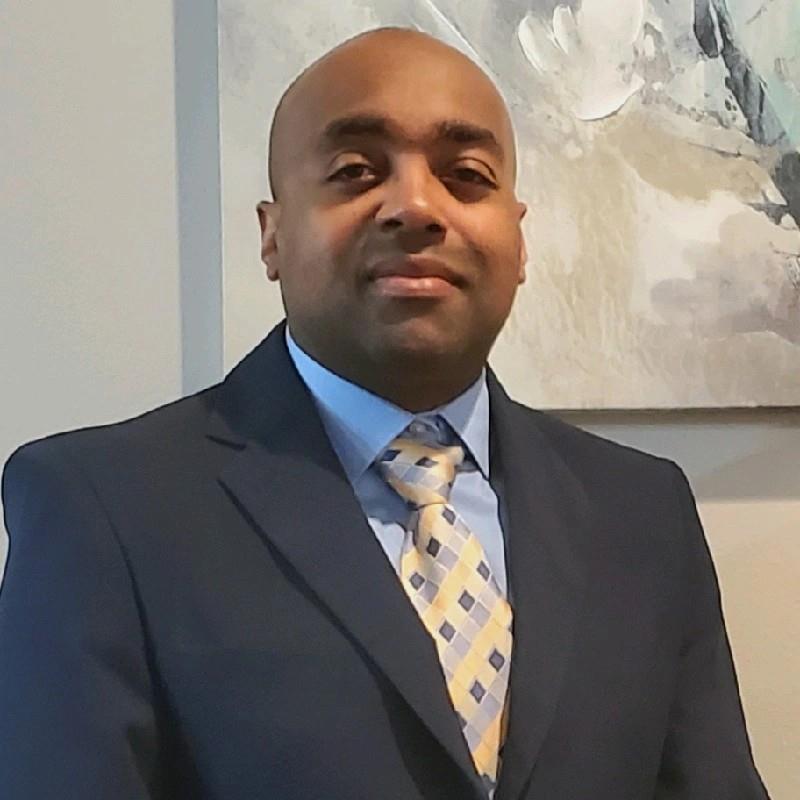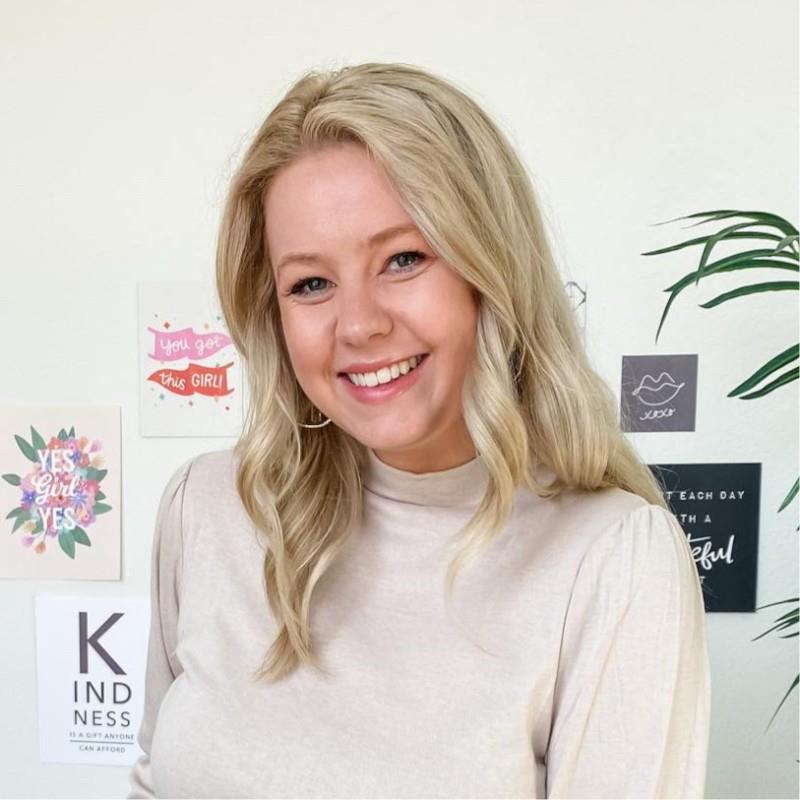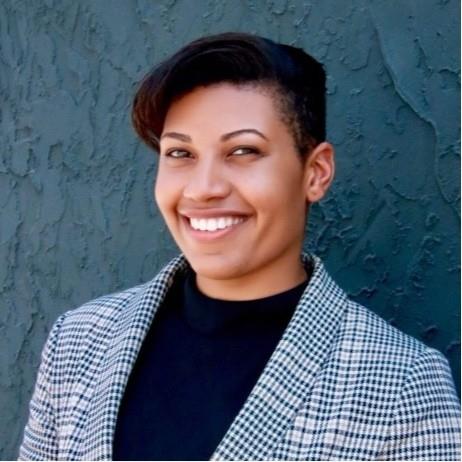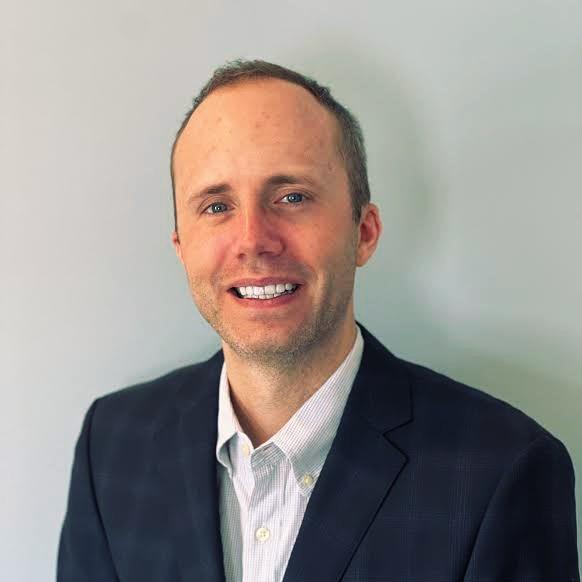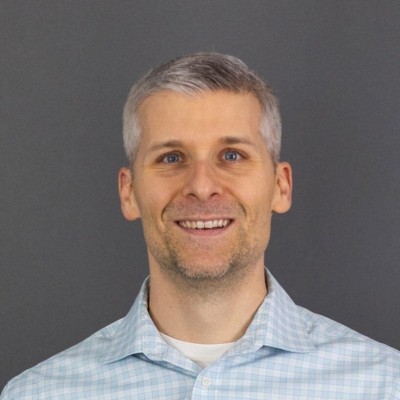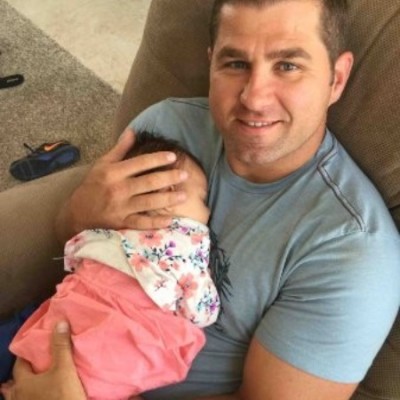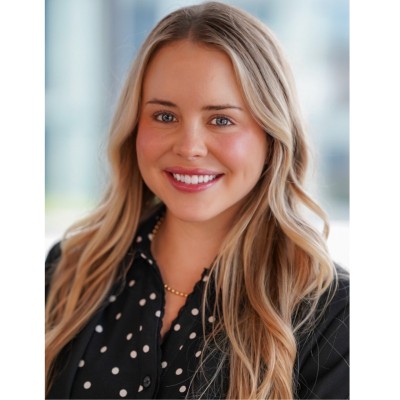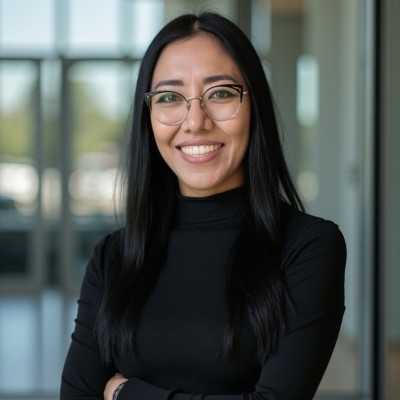Success in cardiovascular sales isn’t just about numbers; it’s about changing lives, one heartbeat at a time. In this inspiring episode, Samuel Adeyinka sits down with Alex Matthews to dive deep into the world of cardiovascular device sales. Alex shares his remarkable journey, shedding light on the challenges and triumphs of being a sales rep in the fast-paced and impactful cardiovascular space. Throughout the episode, Alex emphasizes the importance of self-motivation and dedication, revealing how these traits are key drivers in his successful career. He also touches on the heartwarming moments he’s experienced, where his work directly impacted patients’ lives and contributed to their recovery. Alex’s sales philosophy centers around the fundamental principles of hard work and treating people right. Tune in now and learn valuable lessons that extend beyond the sales field and into everyday life!
The CE experience for this Podcast is powered by CMEfy – click here to reflect and earn credits: https://earnc.me/XVQr5r
—
Watch the episode here
Listen to the podcast here
How To Be A Successful Cardiovascular Sales Rep With Alex Matthews
In this episode, we have with us another special guest and he goes by the name of Alex Matthews. Alex is a sales rep in the cardiovascular space in medical device sales. If that is a field you’ve ever thought about, want to know more about, or want to be in, then this is an episode you have to tune in to. We get into the career track, how he does it a day in the life, how he makes it work with his social life, what you can earn in this space, what you do in this space, who you call on, and how to be successful. We tackle it all. As always, we do our best to bring you innovative guests that are doing amazing things in the medical sales space, and I do hope you enjoy this interview.
—
Alex, how are you doing?
I’m doing well. How are you?
Life is good. No complaints. Why don’t you tell us who you are and what you do?
My name is Alex Matthews. I am in Birmingham, Alabama. I’ve been in medical device for years starting in 2017. For the last three, in the cardiovascular space specifically.
Tell us about this space. What exactly are you doing? Walk us through a day in the life of Alex Matthews.
As I said, cardiovascular is our bread and butter. My call points are going to be cardiac and vascular surgeons. You can get in the weeds and start talking to cardiologists, interventional cardiologists, and anyone who’s involved in what we call the heart valve team. We provide mechanical heart valves for aortic and mitral valve replacements. We also have some auxiliary products that help with repairs in the mitral position as well as surgical sealants, glues, patches, or anything to do with cardiac and vascular surgery, open surgery specifically. We foresee us getting into the endovascular side of things like stint grafts down the road. We have made some acquisitions, but right now, we’re in the open heart and open vascular surgery space.
A day in life is very similar to a lot of OR sales roles. I’d say most of my time is spent selling. We’re always selling. Even if you’re covering a case, you’re building that relationship and becoming a consultant clinic, both clinical and business consultant, for these hospitals and your surgeons. If I’m not in a case, I was hitting the road trying to get in front of doctors that either are using our products or get them to use our products and communicate that value to their practice and to the patients that they’re seeing.
Talk to us about that. What does that look like? Are you forging those relationships when you have a case and you may be set up appointments to come back to sell? Are you walking in there or cold call? Tell us a little bit about how that looks. What’s the scene like?
It’s unique with every facility and with every surgeon. I have several accounts that I can walk in there and might have products on the shelf. I can do my inventory and strike up a conversation with a surgeon as he is walking out of the case and he’s familiar with me. There are some surgeons that prefer to be approached in their office. They want to go through a structured path where I set up a lunch and bring in food. I do the old-school classic way of getting in front of a doctor. In this day and age, especially after the whole pandemic thing, access to facilities in general, let alone surgeons, has gotten more difficult.
You have to get creative. The surgeons that I am closest with, I can shoot them a text and say, “I’m coming by. I would love to see you.” They’ll respond. I like to do it in a way where you’re not stalking these surgeons. Nobody likes that. Think about if someone sees me down the hallway and turns and runs the other way. That’s not what I want. I try to position myself as a consultant relational without trying to be their best friend.
A lot of our clients aren’t trying to make friends. They’re doing a job. My job is to understand what they need out of me whether that’s case support or finding a solution for a problem that they’ve had with different parts of their surgical practice. Even being in eyes and ears in the community, referral patterns, and different things like that. However I can pro provide value, it’s fun because you’re like a detective. You’re figuring out what these people need, and then also providing a solution for them.
What are the hours of work look like for you? Is it all the time, on weekends, and on nights? Is it strictly 8:00 to 5:00? Talk to us.
In the structural heart space, I’ve worked one Saturday in three years. I don’t have necessarily a call schedule. Our products specifically are geared towards we’ll be in the OR as much as they need us. I want to be there as much as I can to build those relationships and know what’s going on in those cases. There are plenty of accounts that I have that are so self-sufficient that I don’t even know when they’re using the product. They don’t have to call me. They’re trained well and they know what they’re doing, especially in the valve space. Some of the other stuff like AAA, stent-grafts, and the aneurysm. Gore, Terumo, Medtronic, and some of these other reps were on call.
We were not selling those types of products. It is different, but you’re still always on. If somebody texts me at 8:00 at night and they don’t have a product, I got to get there and the case is in the morning. The good thing is most of these cases are scheduled. It’s pretty traditional hours. In medical device, you start your day a little bit earlier because people are in the hospital at 6:00 AM. Most of your surgeons are out of there by 3:00. Nobody wants to be approached by a salesperson at 3:00.
Really? Nobody wants to be in front of a salesperson at the end of their day when they want to go home.
After they’ve done several surgeries, they want to see you.
You’ve been in medical device sales for a while, so I’m sure you’ve seen some amazing things in the operating room. If you can share with us a time in this space where you were like, “I am here. I am witnessing this.”
As I said, I came from the interventional spine which was a very hands-on role. There were many times I was in pretty much every one of those cases and the surgeons or physicians would turn and look at me and be like, “What’s next?” I was anticipating that cardiac surgery is going to be that times 1,000 because I had no experience in cardiac. I remember walking into my first case and everybody has a different vibe in the operating room. I was in this case and it was like they had done this 1 million times because they have. They got music playing and people are chatting. That’s not the environment in every OR. It’s at the discretion of the surgeon in the team.
I was like, “This is normal for them. This is what they do. They’re professionals. This is their craft.” I’m over there, sweating bullets and I might get a couple of questions during a case, depending on what’s going on. They’re running the show and I get to be there to support them however I can, which is fun. When you stand at the head of the table, you’re looking over and somebody’s got their chest open. This is somebody’s dad, mom, brother, sister, or whoever, it is intense. It is a very big deal. This is probably one of the biggest moments of that patient’s life. To be in that room, to continue to be able to do that, and occasionally, get to interact with a patient or a patient’s family.
It’s rare but sometimes, I’ve had a couple of opportunities because in the heart valve, the patient is so involved in their decision for what product they get. Sometimes the rep gets to be involved. As I said, it’s more rare but that’s been fun to hear. I had one patient reach out to the company and then connected me. It was the wife of a patient, and she was asking which surgeons implanted our specific valve.
They had done their research. I got to attend the case, and then afterwards, they were pumped because everything went well. Three months later, she texted me and said something like, “I’m back to dancing with my husband. We’re having fun together. We’re so excited.” That was something brand new that I had never experienced. As I said, it doesn’t happen all the time. Those are the things that I hold onto because you’re helping someone with those products that you get to provide.
You said they’re rare. How often would you say you have an experience like that?
Something where I get to hear from a patient, that’s probably the only 1 in 3 years. That’s why it was so big, but in terms of being able to interact, see, and understand the conversation of how a surgeon is presenting these choices to their patients, you’re involved in that process. You might not be the face-to-face but you have an element like, “How well are you educating the staff and surgeons on your product? Do they know how to communicate that value to their patients?” You’re in the background a little bit which I enjoy. You’re empowering these people that have important jobs to do their job well. That’s what gets me out of bed in the morning. It’s there’s somebody out there that needs what I have and how I make sure it gets to them.
That’s a beautiful driver. You talked about how being in a room with a patient’s chest open. You’re there at potentially one of the biggest moments of their life. Have experiences like that made you see your life any differently?
Yes. Honestly, it made me slow down. We were talking earlier. My wife and I were about to have our first son. It’s easy to get caught up in the day-to-day like, “They didn’t use my product. We’re having a real tough negotiation with this hospital. I don’t know how it’s going to turn out.” You get caught up in the business details but then when you see a patient get rolled in and a couple of hours later, they’re on the pump. Their heart stopped and the family is sitting out there somewhere and you’re like, “This is next level. There are more important things than those sales numbers.” That doesn’t mean you don’t stop working and there’s a reason behind it. It gives more of a reason behind why we do what we do.
That’s made me slow down. Now, with my wife and I adding our son, I’m thinking about, “That’s crazy to think about if I had to send a family member into surgery and not know what’s happening.” I feel very privileged to be able to have that peek behind the curtain of what it’s like in the operating room and healthcare. It’s because if we are in that situation or when my wife gives birth, I understand how things work in the healthcare system and the types of providers that are working hard to provide the highest standard of care for patients.
On that note, I always ask about family, and it sounds like we now have yours. You’re expecting a new member with you and your wife. With this career track, specifically the cardiovascular space, how easy or difficult is it to manage a family and be at your best?
It’s been a challenge, specifically in my role. I can’t speak for every role. When I made the move, I took on a larger level of business. There’s a little bit more travel. My manager has been wonderful in designing the territories where you can get everywhere within a day. You don’t have to stay overnight necessarily, but time management has become very crucial. The specific space that I’m on the structural side is a great career for someone that wants a family. The income is at a level where you can provide for your family. The hours are where you’re going to work hard but you do get the chance to turn it off every once in a while and go on a vacation or get off early on a Friday.
The beauty of medical device, in general, is if you’re working hard and working towards the goals that you’ve set for yourself and what the company has set for and you’re doing it in an efficient manner, you are the CEO of your own territory. I love the responsibility, authority, and challenge that comes along with that because you’re not going to have somebody telling you what to do. Overall, it’s a great career for someone that wants to work hard, but also has a desire to have a family or has hobbies outside of working and wants to be able to do those things.
What’s the setup like? What’s your team look like? You are in what title specifically?
The title that our company gives us is cardiovascular sales specialist. It’s pretty much a sales representative. Our team structure, we have seven of us in the Southeast. I’m in the Central Northern Alabama and Mississippi territory, and then everybody else is split up. We have 3 in Florida and 1 in all of Georgia. We have in South Alabama and Florida Panhandle. We’re all spread out, but at this point, we don’t have any clinical specialists that are helping us. The sales rep is the clinical and sales support. As I said, you get to run the show. Our manager empowers the flow and gives us the tools we need to go out there. We have great backing from our company marketing and sales support as well.
Let’s take it from this perspective. You’re either in a different space and you want to enter this one, or you’re new to the industry and you want to be in your space. What are the top three things you would say anyone entertaining this space must be able to do?
The first one I would say is you got to be able to motivate yourself. You’re not going to have somebody telling you what to do. You’re not going to have your tasks laid out for you. There are going to be 1 million options that you could choose from in a day. If you’re not covering cases, which opportunity is the most important? You got to be able to prioritize, motivate yourself, and figure it out. The first thing would be can you manage a territory? Can you manage that freedom well in a way that’s efficient where you’re not busy but effective? That is a huge driver for success.
[bctt tweet=”You have to be able to motivate yourself. You’re not going to have somebody telling you what to do in this space.” via=”no”]
The second one is, can you grind it out? Can you persevere? Can you work hard when no one is looking? When sales are down or volumes are down, are you going to shrink away or are you going to get creative? Go learn something new about a product and find a way to add value to a surgeon that you need to get after.
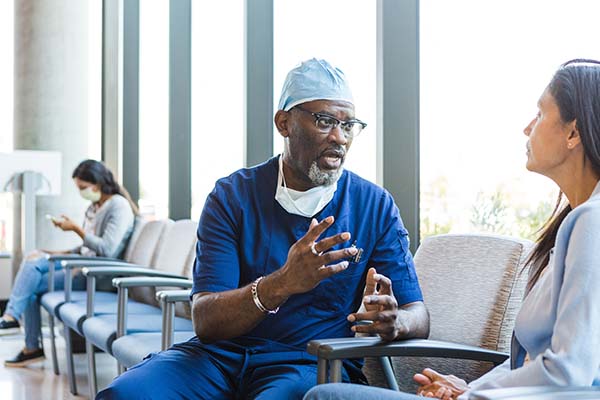
Getting creative in a way that advances your business when things get hard is something that I’ve learned over time. What that looks like? It’s different in every company and product that you’re selling and every little specialty within medical device. The last one for me is, do you treat people right? To me, there’s a lot of content out there on sales, which is phenomenal.
I love scrolling on LinkedIn and reading. There are great people in software sales, medical device, and all kinds of different industries that have great sales content that I’ve received from, and it’s helped me grow a lot. The two main things for me is do you work hard and are you treating people right. That’s my sales philosophy. At the end of the day, can you do that? You’ll find a way to succeed in sales and the rest, you can nitpick your sales process and all your language as you go. If you’re going to play the long game, those are the main ones.
What is the income level someone can anticipate in this space?
With every specialty, it’s a pretty big range. Cardiovascular is probably more lucrative than some other spaces because of the nature of the products that you’re selling. The range I see is anywhere from $150 to, I’ve seen guys making $650 to $700, depending on the territory and the tenure. That sweet spot is the $180 to $250 range. That’s probably the most common when you’re coming in. Usually, these guys and girls that are getting hired into this space have a few years of experience. They’ve either in some type of B2B or some type of medical device.
I’ve found that, specifically in cardiovascular sales, usually, they had some medical device background first before transitioning into this space, or they’ve been there forever. They got in early a long time ago and they’ve stuck it out and rode the wave. It’s a great career. People do well for themselves. I have a lot of friends that I call them like, “How’d you get your territory that size? What’s the chance you blew it away?”
What’s your sentiment towards programs like ours where we take professionals that they have all the right stuff, no experience, no sales experience, or no medical experience, but we’re having success getting them into even cardiovascular sales positions and medical positions? What’s your take on what we do?
There are tools out there that people should take advantage of to learn and grow. What I tell people is that the more you dip your hand into these different things like what you guys are doing and even getting on YouTube, watching videos, and teaching yourself, at the very least, you get a story that you can tell a hiring manager. To me, that’s how you get hired. Can you tell a story? Can you tell your story in a way that’s attractive?
[bctt tweet=”That’s how you get hired: Can you tell a story and can you tell your story in a way that’s attractive?” via=”no”]
If you got guys like you and your team pouring into these potential candidates, they’re gleaning from these experiences, crafting their stories, and preparing themselves not only for a sales career but for the pinnacle moment when they get that opportunity in front of somebody. The medical device is super competitive. Anything that you can do to refine your skills, interviewing skills, and storytelling skills to be able to make it through the clutter of everyone that’s applying, I’m all for it. You guys are doing a great job and helping a lot of people.
You couldn’t have said it better. That’s awesome. This has been fantastic, Alex. You’ve only been in the game for a few years. I’ve talked to hundreds of professionals from executives and sales reps all the way down to clinical specialists, even intake call people that are working for medtech companies. I got to say, for being in the game since 2017, you sound like you’ve mastered a lot in what you’re doing. Keep up the amazing work. We love to hear it. Now we’re going to switch gears a little bit and we’re going to have ourselves a lightning round. Are you ready?
I think so. We’ll find out.
Let’s do it. The first question, you have less than ten seconds to answer, what is the best book you have read in the last few months?
I read a book called Raising Giant Killers. I’m a believer. I’m a Christian and I’ve been trying to learn how to be a dad. I got my first kid coming, so that’s the first one I read. I’ll probably have to read it again and again but how to raise your child to go after their destiny?

That sounds fascinating. How was it?
It was challenging. The read is easy but it makes you look at yourself like, “How am I becoming more patient? How am I becoming more kind? How am I creating an atmosphere of peace in my home, my life, and my work life or with my coworkers?” It spoke to me too as a man, a person, a husband, and a future father. How can I continue to grow and learn?
Next question. What is the best TV show or movie you’ve seen in the last few months?
My wife and I have been cruising through some Peacock shows and different streaming stuff. Brooklyn Nine-Nine has been pretty funny.
What is that? What is Brooklyn Nine-Nine for you?
It’s Andy Sandberg’s show. It’s about the 99th Police Precinct in Brooklyn. It’s funny. It’s a nice, feel-good, funny show. That’s something that my wife and I like to do if we want to turn our brains off for twenty minutes. We sit down, watch a show, and laugh for a second. It’s pretty funny. I do recommend it.
Best meal you’ve had in the last few months?
My wife is an incredible cook. She made a salmon dish. It was like some honey garlic salmon with roasted potatoes. I’m not the cook clearly. I ingest the food but it was so good.
Is she willing to share the recipe?
For sure. She’s got recipe books. She’s on Instagram or social media. I’m looking at her phone and I’m like, “You look at dog videos and recipes. This is awesome.” She’s always got new recipes and brought stuff out. I’m thankful. I’m trying to step my game up. I can grill decently. We like to do steaks every once in a while. That’s my contribution but she has got the cooking thing mastered.
Last question, what’s the best experience you’ve had in the last few months?
I’m going back to what we talked about. Finding out I was going to be a dad was pretty awesome. It’s been an experience. Over time, I came home from the gym. We have a two-and-a-half-year-old silver Lab and he had a new bandana on. She was like, “Check out his bandana. It said Big Bro.” I was like, “Did we get another dog? What’s happening?” It then hit me.
It’s brought on top of the experiences that I get at work. Interacting with all kinds of amazing local healthcare workers and what they’re doing. Also, the team that I get to work with in my company are incredible people. The community that we have, friends, and family local has made it. Finding out I was going to be a father amplified all of that and opened my eyes to be like, “Things are good. When things get hard, there are bigger things that are more important that matter more.”
[bctt tweet=”When things get hard, there are bigger things that are more important that matter more.” via=”no”]
Amen to that. Alex, you’re an impressive young guy. Keep doing your thing. It was awesome having you on the show, and we can’t wait to see what you got for the rest of your career. We’ll be in touch.
Thanks so much. I appreciate it.
—
That was Alex Matthews. It’s fascinating stuff. If this is a field you’ve wanted to get into and you’ve been trying, or you wish you could do or maybe it’s a far thought in your mind, let’s make it a reality. Visit EvolveYourSuccess.com and let us help you get into a position like this where you could have a story similar to his, a team of professionals diligently working to get you exactly where you want to be. Help you with that resume, the career portfolio, and your LinkedIn profile. Teach you what to say when you’re talking to hiring managers, sales reps, and recruiters.
Get you in front of the right people. Get your business presentations done. Get your 30/60/90. Everything you can ask for from your letters of rec to how to negotiate your offer to making sure you knock out of the park in every one of your interviews. We can help you do it and you can live the dream that Alex gets to live every day. As always, we do our best to bring innovative guests that are doing amazing things in the medical sales space. Make sure you tune in next week to another episode.
Important Links
About Alex Matthews
 Alex is medical device sales professional located in Birmingham, Alabama. After a collegiate football career at the University of Pennsylvania in Philadelphia and Samford University in Birmingham, studying marketing and economics with a concentration in sports marketing – he decided to step away from the sports world – where he was most comfortable – and pursue a career in medical device. He landed a territory manager role with a patient safety start-up right out of school where he cut his teeth, and has continued to grow and learn along the way. Alex is now a rep for a leading cardiovascular device manufacturer, living in Birmingham with his wife Sarah, and had their first child in June.
Alex is medical device sales professional located in Birmingham, Alabama. After a collegiate football career at the University of Pennsylvania in Philadelphia and Samford University in Birmingham, studying marketing and economics with a concentration in sports marketing – he decided to step away from the sports world – where he was most comfortable – and pursue a career in medical device. He landed a territory manager role with a patient safety start-up right out of school where he cut his teeth, and has continued to grow and learn along the way. Alex is now a rep for a leading cardiovascular device manufacturer, living in Birmingham with his wife Sarah, and had their first child in June.
Love the show? Subscribe, rate, review, and share!
Join the Medical Sales Podcast Community today:
